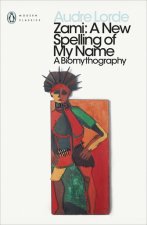
Kod: 04938966
Managing African Portugal
Autor Kesha Fikes
In "Managing African Portugal", Kesha D. Fikes shows how Portugal's economic integration into the European Union (EU) in 1996 fundamentally changed ordinary encounters between African migrants and Portuguese citizens. This economi ... więcej
- Język:
 Angielski
Angielski - Oprawa: Twarda
- Liczba stron: 224
Wydawca: Duke University Press, 2009
- Więcej informacji o książce

128.10 €
Dostępność:
50 % szansa Otrzymaliśmy informację, że książka może być ponownie dostępna. Na podstawie państwa zamówienia, postaramy się książkę sprowadzić w terminie do 6 tygodni. Gwarancja pełnego zwrotu pieniędzy, jeśli książka nie zostanie zabezpieczona.
Otrzymaliśmy informację, że książka może być ponownie dostępna. Na podstawie państwa zamówienia, postaramy się książkę sprowadzić w terminie do 6 tygodni. Gwarancja pełnego zwrotu pieniędzy, jeśli książka nie zostanie zabezpieczona.Przeszukamy cały świat
Zobacz książki o podobnej tematyce
Podaruj tę książkę jeszcze dziś
- Zamów książkę i wybierz "Wyślij jako prezent".
- Natychmiast wyślemy Ci bon podarunkowy, który możesz przekazać adresatowi prezentu.
- Książka zostanie wysłana do adresata, a Ty o nic nie musisz się martwić.
Powiadomienie o dostępności
Wpisz swój adres e-mail, aby otrzymać od nas powiadomienie,
gdy książka będzie dostępna. Proste, prawda?
Więcej informacji o Managing African Portugal
Za ten zakup dostaniesz 321 punkty
 Opis
Opis
In "Managing African Portugal", Kesha D. Fikes shows how Portugal's economic integration into the European Union (EU) in 1996 fundamentally changed ordinary encounters between African migrants and Portuguese citizens. This economic transition is examined through transformations in popular ideologies of difference that occurred in workspaces in Lisbon between the mid-1990s and the early 2000s. Fikes evaluates how unmonitored racial commentary shifts from a manifestation of 'Southern' or 'tropicalist ignorance' to an incriminating signifier that is locally treated as symptomatic of modern chaos. She considers how both antiracism and racism instantiate proof of Portugal's European 'conversion' and modernization, respectively. The ethnographic focus is a former undocumented fish market that at one time employed both Portuguese and Cape Verdean women. Both groups eventually sought work in low-wage professions as maids, nannies, or restaurant kitchen help. The visibility of poor Portuguese women as domestics was thought to negate the appearance of Portuguese modernity. By contrast, the association of poor African women with domestic work confirmed it. Fikes argues that we can better understand how Portugal interpreted its accession process by mutually attending to the different directions in which working-poor Portuguese and Cape Verdean women were routed after 1996 and by observing the character of the new work relationships that developed between them thereafter. In "Managing African Portugal", Fikes pushes for a study of migrant phenomena that considers not only how the enactment of citizenship by the citizen manages the migrant, but also how citizens are simultaneously governed through their uptake and inhabitance of new EU citizen roles.
 Szczegóły książki
Szczegóły książki
Kategoria Książki po angielsku Society & social sciences Society & culture: general Social groups
128.10 €
- Pełny tytuł: Managing African Portugal
- Podtytuł: The Citizen-Migrant Distinction
- Autor: Kesha Fikes
- Język:
 Angielski
Angielski - Oprawa: Twarda
- Liczba stron: 224
- EAN: 9780822344988
- ISBN: 082234498X
- ID: 04938966
- Wydawca: Duke University Press
- Waga: 454 g
- Wymiary: 236 × 155 × 18 mm
- Data wydania: 17. November 2009
Ulubione w innej kategorii
-

Women Who Run with the Wolves
9.88 € -17 % -

Women Who Run With The Wolves
13.51 € -29 % -

Second Sex
15.12 € -23 % -

The Way of Men
13 € -23 % -

The Velvet Rage
16.23 € -23 % -

Why Does He Do That?
16.43 € -18 % -

Letters to a Young Muslim
12.90 € -17 % -

Woman Looking at Men Looking at Women
12.20 € -27 % -

Male Brain
12.40 € -21 % -

Humans of New York
25.71 € -16 % -

Black Elk Speaks
20.47 € -10 % -

Raising Kanye
15.93 € -20 % -

Triumph of the City
10.99 € -25 % -

Lost Keys of Freemasonry
9.78 € -19 % -

Witches, Witch-hunting, And Women
12.80 € -15 % -

Sioux Chef's Indigenous Kitchen
30.35 € -11 % -

By Any Means Necessary
13 € -19 % -

North American Indians
15.12 € -20 % -

NATIVE AMERICAN MYTHS
18.25 € -28 % -

Maimonides-Essential Teachings on Jewish Faith & Ethics
16.13 € -19 % -

Dona Gracia of the House of Nasi
23.29 € -19 % -

Dark Emu
15.22 € -28 % -

Duke of Naxos of the House of Nasi
23.29 € -19 % -

Beginner's Ladino with Online Audio
17.24 € -17 % -

Navajo Coyote Tales
16.13 € -19 % -

The Politically Incorrect Guide to Jihad
18.25 € -20 % -

Manipulated Man
14.21 € -16 % -

Think Like a Monk
14.52 € -29 % -

The Mastery of Love
12.30 € -19 % -

Iron John
17.14 € -18 % -

Hillbilly Elegy
12.60 € -36 % -

Goddesses in Everywoman
12.20 € -22 % -

Who Cooked the Last Supper?
19.76 € -6 % -

The Autobiography of Malcolm X
10.48 € -7 % -

When God Was A Woman
19.56 € -2 % -

Lean In
12.80 € -23 % -

Gender Trouble
27.13 € -

Zami
10.08 € -24 % -

Tom of Finland. The Complete Kake Comics
21.07 € -

Desert Flower
10.08 € -24 % -

Uncle Tom's Cabin
4.83 € -19 % -

Indigenous Peoples' History of the United States
15.32 € -15 % -

Deepest Well
16.43 € -18 % -

Like She Owns the Place
17.24 € -21 % -

Hillbilly Elegy
21.07 € -31 % -

Autobiography of Malcolm X
10.18 € -23 % -

Native American Clothing
55.57 € -14 % -

Nice Girls Don't Get The Corner Office
9.78 € -24 % -

The Male Nude
18.25 € -9 %
Osobní odběr Bratislava a 2642 dalších
Copyright ©2008-24 najlacnejsie-knihy.sk Wszelkie prawa zastrzeżonePrywatnieCookies





 Vrácení do měsíce
Vrácení do měsíce Zdarma od 49.99 €
Zdarma od 49.99 € 02/210 210 99 (8-15.30h)
02/210 210 99 (8-15.30h)